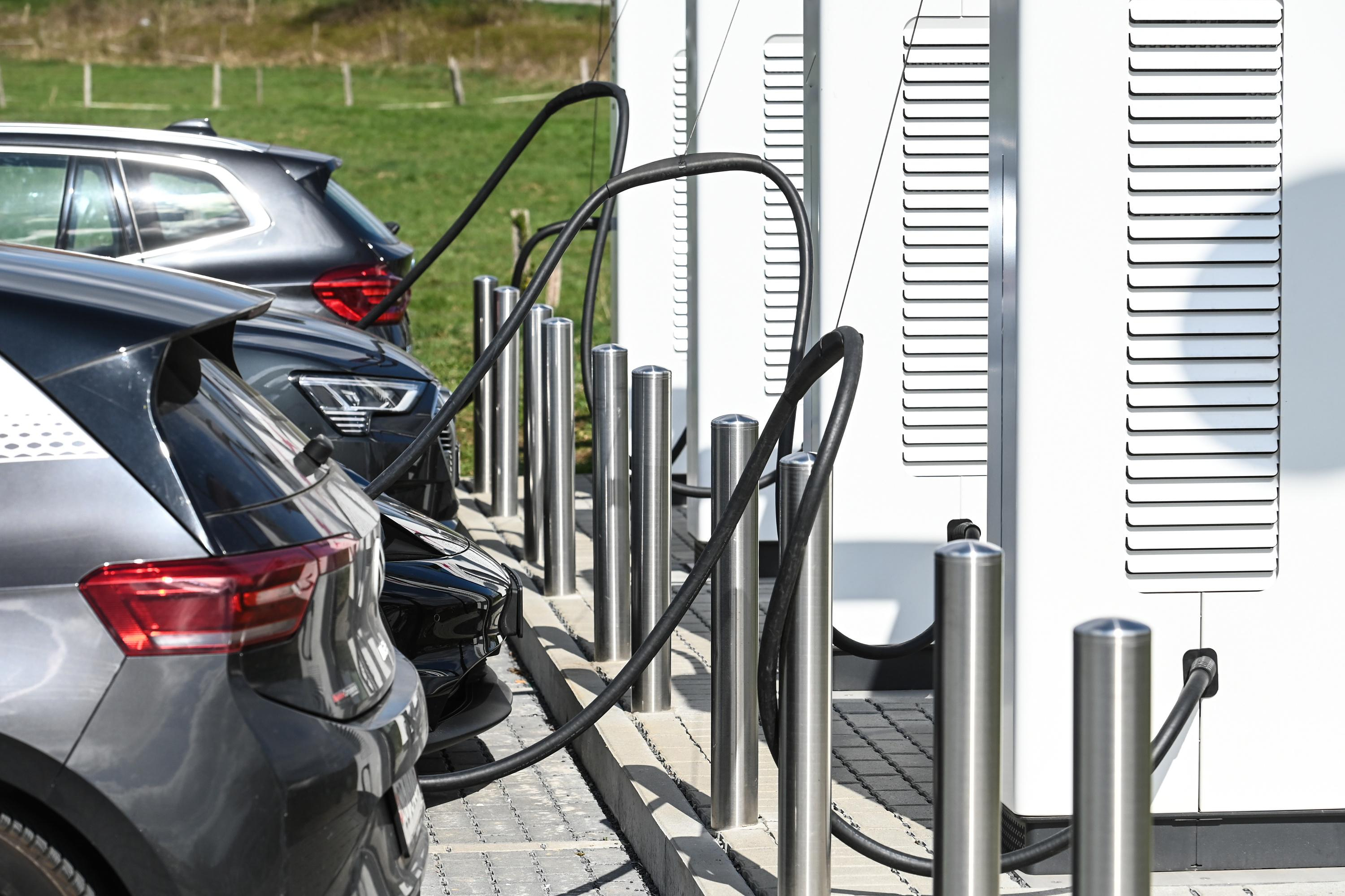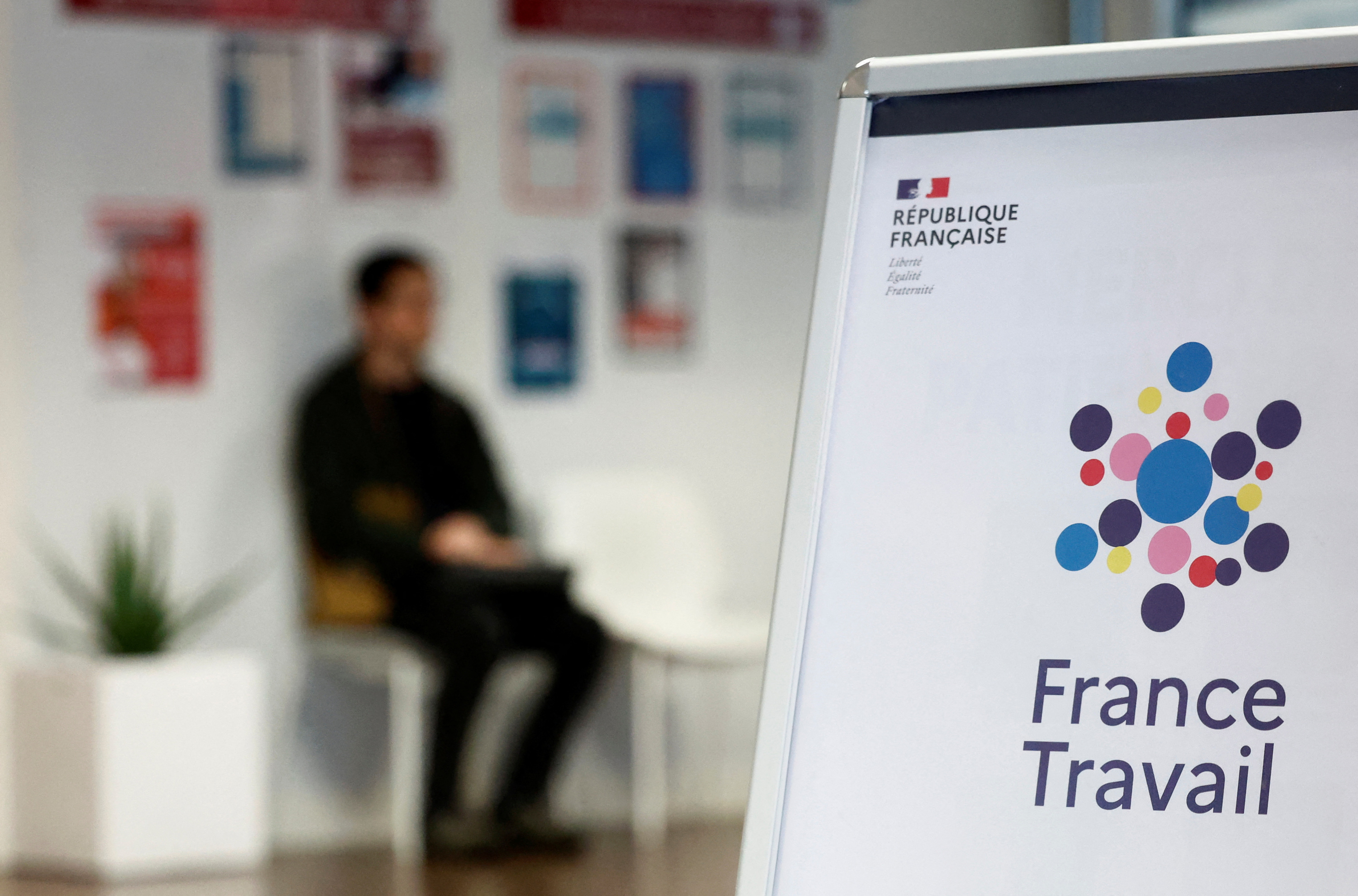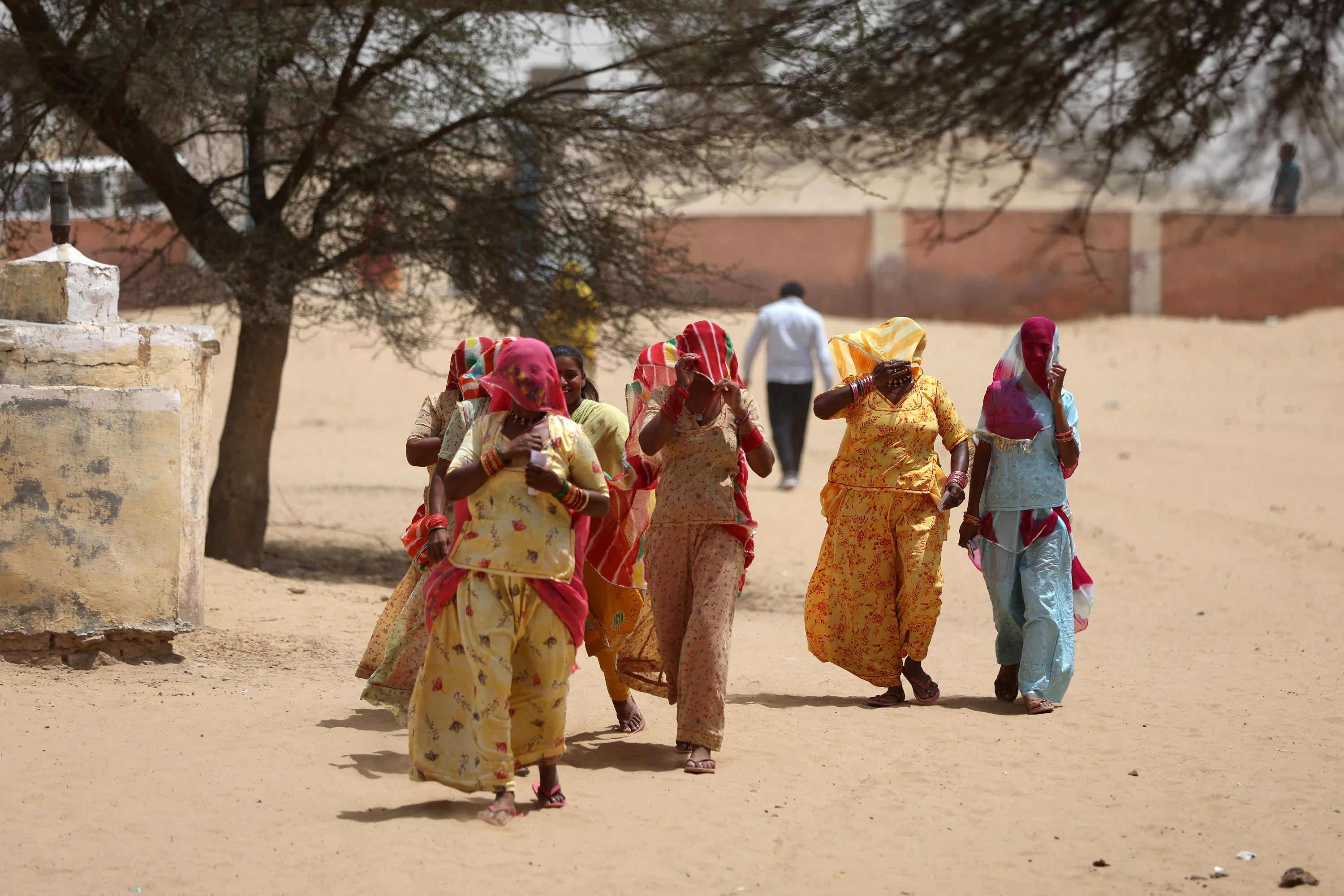This is a crucial referendum for French geopolitical ambitions. It is closely monitored by growing Chinese influence in this region.
Pro-independence groups are refusing to participate and accuse the French government, who they claim is trying to rush the vote.
The COVID-19 crises complicated the referendum campaign, which was the third and final such vote planned as part of decades-long decolonization efforts. This process is intended to settle tensions between native Kanaks who seek independence and those who want France to retain the territory.
New Caledonia, a vast archipelago east from Australia, will open polls at 7 a.m. on April 1. Voters will be asked to vote "Yes or No" on the question: "Do You Want New Caledonia To Have Full Sovereignty and Be Independent?"
After violence in 1988, the Noumea Agreement led to broad autonomy for the territory of 270,000 inhabitants. The agreement provided for the "progressive and accompanied and irreversible transfer power from the French state of New Caledonia" except in the areas relating to defense, foreign affairs, and currency.
43.6% supported independence in the 2018 referendum, while 46.7% supported it in the 2020 second. Although support for a yes vote appeared to be increasing, the first coronavirus epidemic in the region in September caused chaos. New Caledonia was one of few places on the planet that had not been infected by viruses until then.
The archipelago had already reported 271 deaths from COVID-19 by November. Therefore, the regional Senate declared a year of traditional Kanak mourning. Independence activists demanded the postponement of the referendum because they felt they could not campaign for respect for their deceased.
Pro-France groups argued that the vote should be held as planned on December 12th to end uncertainty about New Caledonia's economic future and boost its economic prospects. The virus situation stabilized after military medics arrived from the mainland. The French government decided to keep the date as planned.
Pro-independence activists declared they would not take part in the election, accusing Paris' government of imposing the referendum date and violating neutrality through publishing a document that was perceived as casting negative consequences for independence.
It has been a bizarre campaign with no billboards, no flags on the streets, and unusual calm.
The pro-France Voices said that it was difficult to prepare for and play a match if the opponent says they won't be coming. The group demanded a "massive voter turnout" to ensure that the outcome was not tampered with.
The referendum will have a far greater impact than the future of Caledonians. France wants to consolidate its presence in the Indo-Pacific after it lost a multi-billion dollar submarine contract due to a partnership Australia established with the United States of America and the U.K. France suffered a major blow when the secretly negotiated project was announced in September.
This time, unlike previous votes, "the question about New Caledonia’s strategic positioning is addressed." Caroline Gravelat, University of New Caledonia law professor, said that this novelty is in the context of the submarine partnership and the assertion of Chinese-American rivalry within the Pacific.
One of the two French bases in the Pacific is located in New Caledonia. This allows France to play a role in regional security. It is currently cooperating with the U.S. and Australia on maritime surveillance, search-and-rescue at sea, ocean mining and fighting illegal fishing.
Gravelat stated that the potential independence of New Caledonia raises concerns about China's already strong influence in Oceania.
New Caledonia was made French under Napoleon III, Napoleon's nephew in 1853. It was then used for many decades as a prison colony. After World War II, it became an overseas territory. All Kanaks were granted French citizenship in 1957. Its population today includes Kanaks as well as descendants of European colonizers.
The U.N. supported New Caledonia's process of decolonization and sent electoral observers to observe Sunday's vote. The Pacific Islands Forum also closely monitors the vote and sent a delegate to observe it.
Even if the territory votes for France, the Noumea Agreement process does not end with that vote. The state, non-separatists, and separatists would have to negotiate a new status within France for the territory.

 Germany: the trial of an AfD leader, accused of chanting a Nazi slogan, resumes this Tuesday
Germany: the trial of an AfD leader, accused of chanting a Nazi slogan, resumes this Tuesday New York: at Columbia University, the anti-Semitic drift of pro-Palestinian demonstrations
New York: at Columbia University, the anti-Semitic drift of pro-Palestinian demonstrations What is Akila, the mission in which the Charles de Gaulle is participating under NATO command?
What is Akila, the mission in which the Charles de Gaulle is participating under NATO command?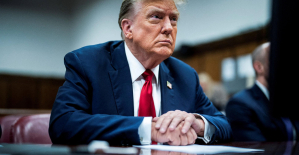 Lawyer, banker, teacher: who are the 12 members of the jury in Donald Trump's trial?
Lawyer, banker, teacher: who are the 12 members of the jury in Donald Trump's trial? What High Blood Pressure Does to Your Body (And Why It Should Be Treated)
What High Blood Pressure Does to Your Body (And Why It Should Be Treated) Vaccination in France has progressed in 2023, rejoices Public Health France
Vaccination in France has progressed in 2023, rejoices Public Health France Food additives suspected of promoting cardiovascular diseases
Food additives suspected of promoting cardiovascular diseases “Even morphine doesn’t work”: Léane, 17, victim of the adverse effects of an antibiotic
“Even morphine doesn’t work”: Léane, 17, victim of the adverse effects of an antibiotic Orthodox bishop stabbed in Sydney: Elon Musk opposes Australian injunction to remove videos on X
Orthodox bishop stabbed in Sydney: Elon Musk opposes Australian injunction to remove videos on X One in three facial sunscreens does not protect enough, warns L'Ufc-Que Choisir
One in three facial sunscreens does not protect enough, warns L'Ufc-Que Choisir What will become of the 81 employees of Systovi, a French manufacturer of solar panels victim of “Chinese dumping”?
What will become of the 81 employees of Systovi, a French manufacturer of solar panels victim of “Chinese dumping”? “I could lose up to 5,000 euros per month”: influencers are alarmed by a possible ban on TikTok in the United States
“I could lose up to 5,000 euros per month”: influencers are alarmed by a possible ban on TikTok in the United States Dance, Audrey Hepburn’s secret dream
Dance, Audrey Hepburn’s secret dream The series adaptation of One Hundred Years of Solitude promises to be faithful to the novel by Gabriel Garcia Marquez
The series adaptation of One Hundred Years of Solitude promises to be faithful to the novel by Gabriel Garcia Marquez Racism in France: comedian Ahmed Sylla apologizes for “having minimized this problem”
Racism in France: comedian Ahmed Sylla apologizes for “having minimized this problem”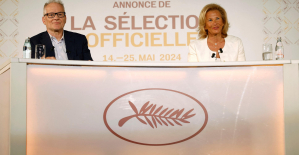 Mohammad Rasoulof and Michel Hazanavicius in competition at the Cannes Film Festival
Mohammad Rasoulof and Michel Hazanavicius in competition at the Cannes Film Festival Skoda Kodiaq 2024: a 'beast' plug-in hybrid SUV
Skoda Kodiaq 2024: a 'beast' plug-in hybrid SUV Tesla launches a new Model Y with 600 km of autonomy at a "more accessible price"
Tesla launches a new Model Y with 600 km of autonomy at a "more accessible price" The 10 best-selling cars in March 2024 in Spain: sales fall due to Easter
The 10 best-selling cars in March 2024 in Spain: sales fall due to Easter A private jet company buys more than 100 flying cars
A private jet company buys more than 100 flying cars This is how housing prices have changed in Spain in the last decade
This is how housing prices have changed in Spain in the last decade The home mortgage firm drops 10% in January and interest soars to 3.46%
The home mortgage firm drops 10% in January and interest soars to 3.46% The jewel of the Rocío de Nagüeles urbanization: a dream villa in Marbella
The jewel of the Rocío de Nagüeles urbanization: a dream villa in Marbella Rental prices grow by 7.3% in February: where does it go up and where does it go down?
Rental prices grow by 7.3% in February: where does it go up and where does it go down? Europeans: “All those who claim that we don’t need Europe are liars”, criticizes Bayrou
Europeans: “All those who claim that we don’t need Europe are liars”, criticizes Bayrou With the promise of a “real burst of authority”, Gabriel Attal provokes the ire of the opposition
With the promise of a “real burst of authority”, Gabriel Attal provokes the ire of the opposition Europeans: the schedule of debates to follow between now and June 9
Europeans: the schedule of debates to follow between now and June 9 Europeans: “In France, there is a left and there is a right,” assures Bellamy
Europeans: “In France, there is a left and there is a right,” assures Bellamy These French cities that will boycott the World Cup in Qatar
These French cities that will boycott the World Cup in Qatar Serie A: Bologna surprises AS Rome in the race for the C1
Serie A: Bologna surprises AS Rome in the race for the C1 Serie A: Marcus Thuram king of Italy, end of the debate for the position of number 9 with the Blues?
Serie A: Marcus Thuram king of Italy, end of the debate for the position of number 9 with the Blues? Milan AC-Inter Milan: Thuram and Pavard impeccable, Hernandez helpless… The tops and flops of the derby
Milan AC-Inter Milan: Thuram and Pavard impeccable, Hernandez helpless… The tops and flops of the derby Ligue 2: Auxerre leader, Bordeaux in crisis, play-offs... 5 questions about an exciting end of the season
Ligue 2: Auxerre leader, Bordeaux in crisis, play-offs... 5 questions about an exciting end of the season




